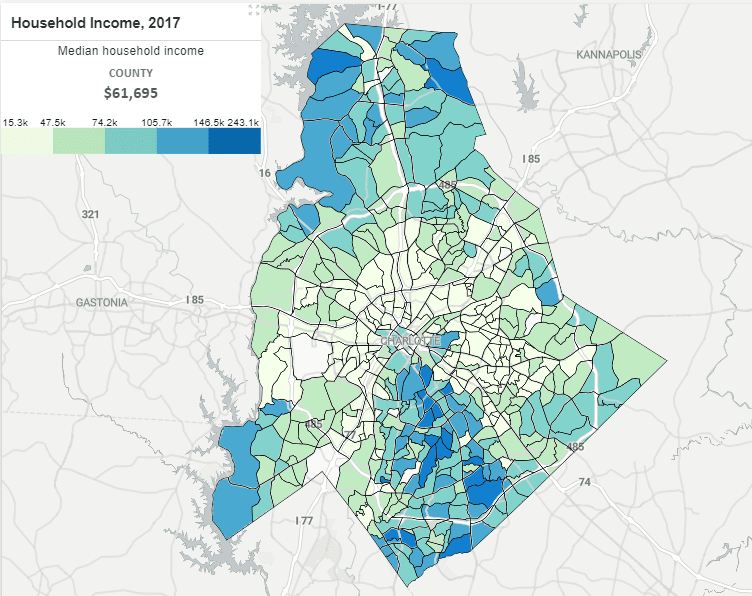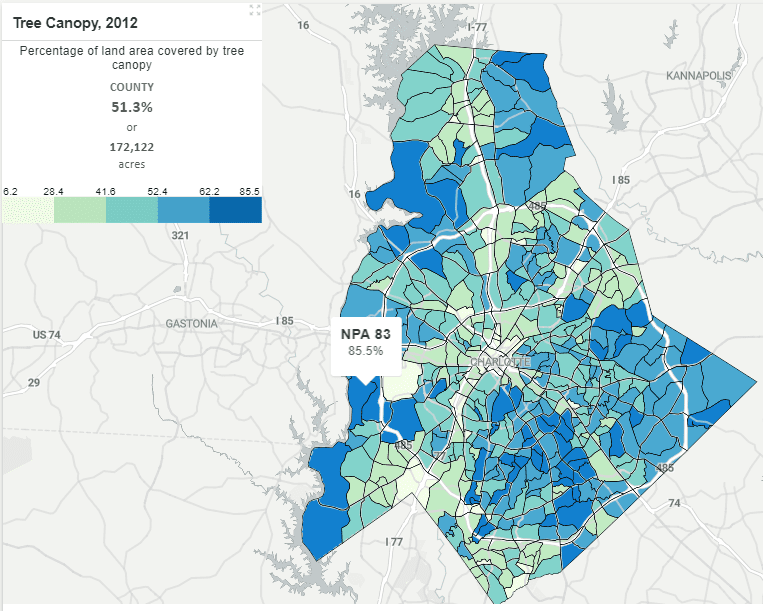Thinking of Environmental Justice as a Public Health Issue

by: Darien Woods, Julia Stullken (MPH students), and Dr. Jan Warren-Findlow (MPH Program Director)
In the wake of the Climate Strike that took place in Charlotte and around the world on September 19th, the media are abuzz with the importance of environmental justice. But what is environmental justice and what does it mean for public health?
Environmental justice is the point where social justice, environmental science and public health all meet. Environmental justice is equal protection from environmental harms and risks. The primary principal of environmental justice is to involve all groups, especially those historically marginalized, to make important decisions about the development and enforcement of environmental policy. You may be familiar with some of the long-standing and landmark environmental justice issues in North Carolina, including hog farming in eastern North Carolina, waste disposal, and air and water quality mismanagement. Some of the early whistle-blowers for environmental injustice called it “environmental racism” because African Americans are disproportionately affected by environmental injustice. As public health practitioners, our core functions dictate that we are responsible for assessing environmental health status and risks, informing policy development to reduce negative environmental exposures, and assuring that communities have the resources they need to improve their health.
As the largest metropolitan city in the state, Charlotte’s environmental hazards include air quality management, land use management, and exposure to extreme temperatures. As climate changes and populations become increasingly urban, it is of utmost importance that cities practice safe zoning, reduce emissions, and improve sustainability.
Researchers predict that by 2080, the climate in Charlotte will most closely resemble that of Northern Florida. Changes in climate will of course affect us all, but especially the elderly and those with lower socioeconomic status. Neighborhoods without green spaces will feel the effects of extreme temperatures even more severely, since trees help to reduce summer heat and mitigate air pollution. According to a Tree Canopy Assessment performed in 2016, Charlotte’s tree canopy hasn’t changed much since 2012. The assessment originally inspired the city to adopt a “50 by 50” goal to increase the tree coverage from 47% to 50%, but this goal was dropped and smaller, regional goals were adopted instead. As Charlotte’s population grows, increasing the tree canopy will be even more challenging, and the neighborhoods most affected are those with the most development or commercial zoning. According to 2012 data used in the county’s Quality of Life Explorer, the tree canopy covers less than 40% of the area in many of the neighborhoods in the Charlotte crescent. In an effort to maintain the tree canopy in Charlotte, the city offers financial incentives for commercial developers who keep trees instead of cutting them down. The city has also partnered with, TreesCharlotte, a non-profit organization dedicated to increasing the tree canopy by giving away free trees to certain Charlotte neighborhoods. The organization donates saplings and instructs residents how to plant and care for their new trees. See their website for more information about how you can take home free trees.


In addition to preserving the green spaces in Charlotte, another priority issue is to protect the health and wellness of the communities in Charlotte that are at risk of experiencing environmental impacts. One way this is being done is by monitoring air quality in Historic West End. This project aims to assess the air pollution risk that is the result of industrial development that has affected this west Charlotte community for many years. Clean Air Carolina has been an influential organization who has developed their own air monitoring program using Citizen Scientists to aid in protecting the communities most at risk. Check out the current status of the project here. Not only has air pollution been one of the top public health priorities for Charlotte-Mecklenburg, the harmful implications of not addressing climate change will continue to complicate this issue. Addressing air pollution and climate change issues collectively can go hand-in-hand in promoting efforts to improve health. According to the World Health Organization (WHO), reductions in air pollutants will provide communities with short term improvements, as well as affecting global health down the line. Essentially, efforts made here in Charlotte will have positive impacts not only locally, but statewide and possibly nationally. Next month, Clean Air Carolina is hosting their STATE OF THE CLIMATE 2019 event, where they will be talking more about how to turn these efforts into outcomes.
Tackling environmental injustice is a community effort, meaning that those most affected should be involved in the improvement process for both government and non-profit projects. Treating environmental health as a social determinant of health is one way to address disparities and assure action. Many organizations have made it their priority to include their communities and stakeholders as influential resources to help tackle the issues. One organization in particular is the Urban Institute right here at UNC Charlotte. This community outreach institute has been impactful in promoting engagement and awareness of environmental hazards affecting our communities. The Institute is celebrating its 50th year of advancing UNC Charlotte’s engagement in economic, social and environmental issues and has made the most of mobilizing community outreach to achieve their missions.
As 2019 is winding down, it is time to reflect and be proactive in understanding the implications that environmental injustice has on our community. Before the year’s end and in preparation for Earth Day’s 50th anniversary in April 2020, The Department of Public Health Sciences will be hosting a speaker series to highlight the importance of environmental injustice as a key public health issue. You can stay updated with all events happening through the department on our website, cws.charlottewp.psapp.dev/stage-ech. It’s never too late to get involved, and a new decade brings new opportunities to be part of the solution.